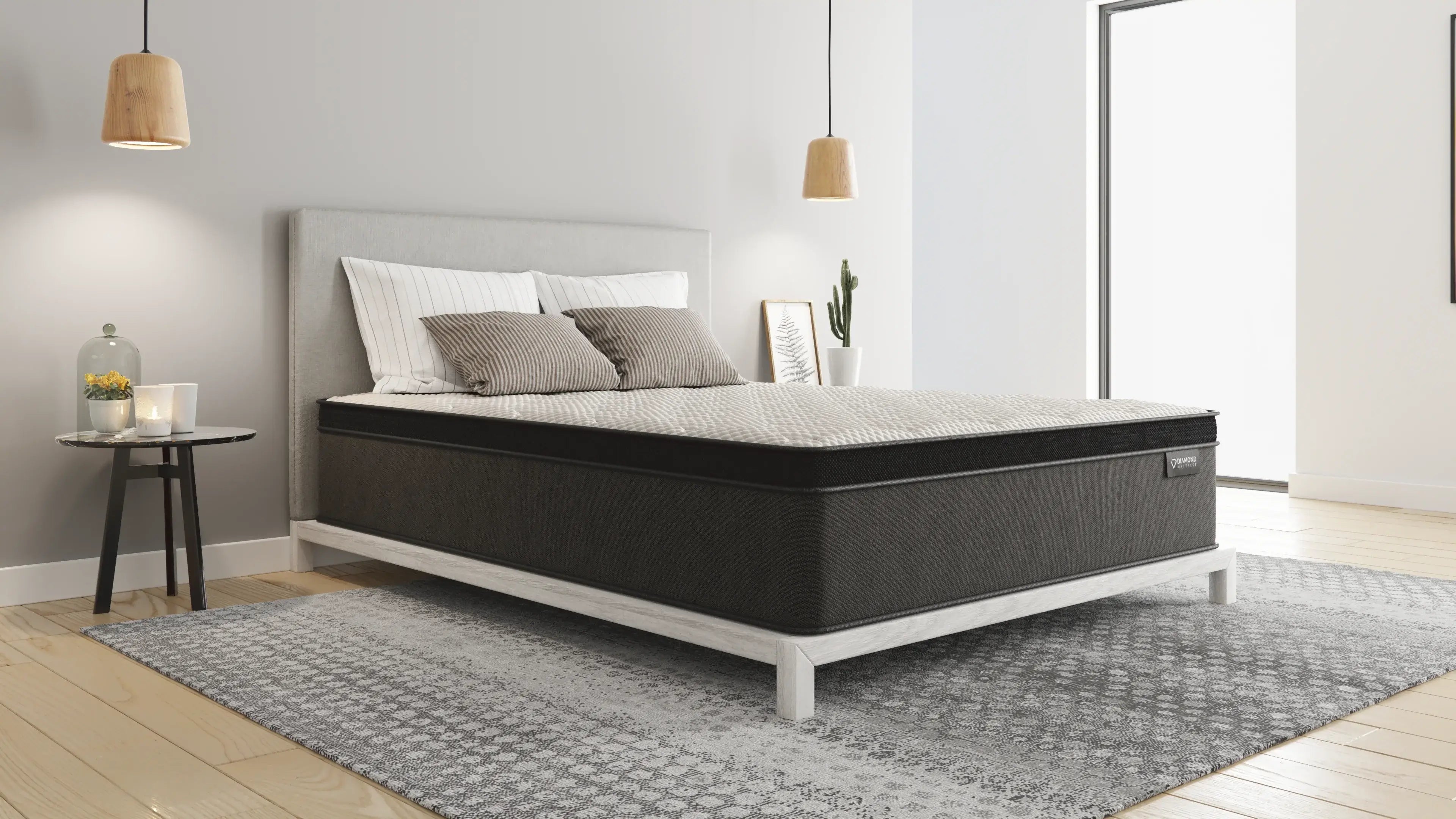Finding the right mattress to fix your back pain takes time – and patience…
Chronic back pain is one the most challenging medical conditions to treat and/or cure – and yet it sends more people to the doctor than sore throats. Sitting all day at a desk or standing in heels wreaks havoc on spinal alignment and most of us don’t exercise enough to undo that damage.
Sleep can help heal the abuse we throw at our backs but most of us don’t sleep on a mattress that adequately supports our backs and joints. And when we don’t give our backs the rest they need, mornings can be painful.
If you and your mattress have lost that loving feeling, let’s talk about the ways a mattress can hurt your back – and the types of mattresses that can help back pain management and support.
Poor mattress support can lead to lots of back pain
Mattress support refers to how well a mattress can maintain an equally level surface for the lighter (head, hands and feet) and heavier (hips and torso) parts of your body. A very soft mattress may be supportive initially buy may fail to support your body equally as time goes on. In extreme cases, a soft mattress that begins to sag (which often occurs in the center third of the mattress) can result in lower back pain in and out of bed.
An important thing to note is that some degree of dipping (in that middle third of your mattress) is a natural occurrence as areas that support the heaviest parts of the body compress over time.
A good mattress should conform to your body
While a supportive mattress is important, pay attention to how it conforms to your shape as well. Conformability describes how a mattress molds to the unique curves of your body. A mattress with good conformability attends to heavier and lighter areas equally, which relieves pressure point pain and protects your back from pain.
A mattress that lacks conformability can result in lower back pain by forcing it into an unnaturally flat position. Your body is in alignment when the spine is (mostly) straight when lying on your side. When you lie on your back, your spine naturally forms an “S” shape. A supportive, conforming mattress allows your back muscles to relax, which improves healthy blood circulation and reduces tossing and turning.
What type of mattress is best for back pain?
Mom always said the firmer the mattress, the better and for many years I slept on a mattress that felt more like the sidewalk than a bed. Thanks to those years, my chiropractor and massage therapist enjoy job security.
In general, mattresses fall into three categories:
- Soft mattresses – Tend to conform to your shape but fail to deliver uniform support across the entire body, which can result in lower back pain.
- Medium firm mattresses – Tend to deliver equally on conformability and support and alleviate pressure point pain in most people.
- Very firm mattresses – Tend to offer good support but little (if any) conformability, which can lead to pressure point pain.
Does your mattress offer you the support, conformability and firmness you need to reduce your back pain?
Many people confuse firmness with support when they’re shopping for a new mattress – and conformability often never enters the conversation. To minimize pain and discomfort and help your body relax into healing, regenerative sleep, you need a mattress that conforms to your sleeping position while supporting all areas of your body – not an easy task.
Shopping for a new mattress
So how do you find the best mattress for you? Grab your partner (if you don’t sleep alone) and start mattress shopping. By shopping, we mean lying on a lot of mattresses.
Talk to lots of sales people – this is their business after all – but be prepared to test mattresses for yourself. You know how your body feels on a bad mattress, so it makes sense that you’ll also know what feels good. Try these 3 simple rules when shopping:
- You don’t sleep sitting up so lie down on the bed
- Lie on the bed like you do at home – side, stomach or back.
- Compare mattresses at similar price points so you comparing fairly.
What’s the true cost of a good mattress? If you spent $2,000 on a new mattress and slept comfortably on that mattress for 7 years, the cost of healthy sleep would be $1.27 per night – less than the cost of Starbucks coffee in the morning…
If you’re ready for a new mattress, we’d love to help you find the right one for you. Visit our Find a Retailer page and we’ll locate a store close by where you can lie on our mattresses and talk to a trained sales professional.


